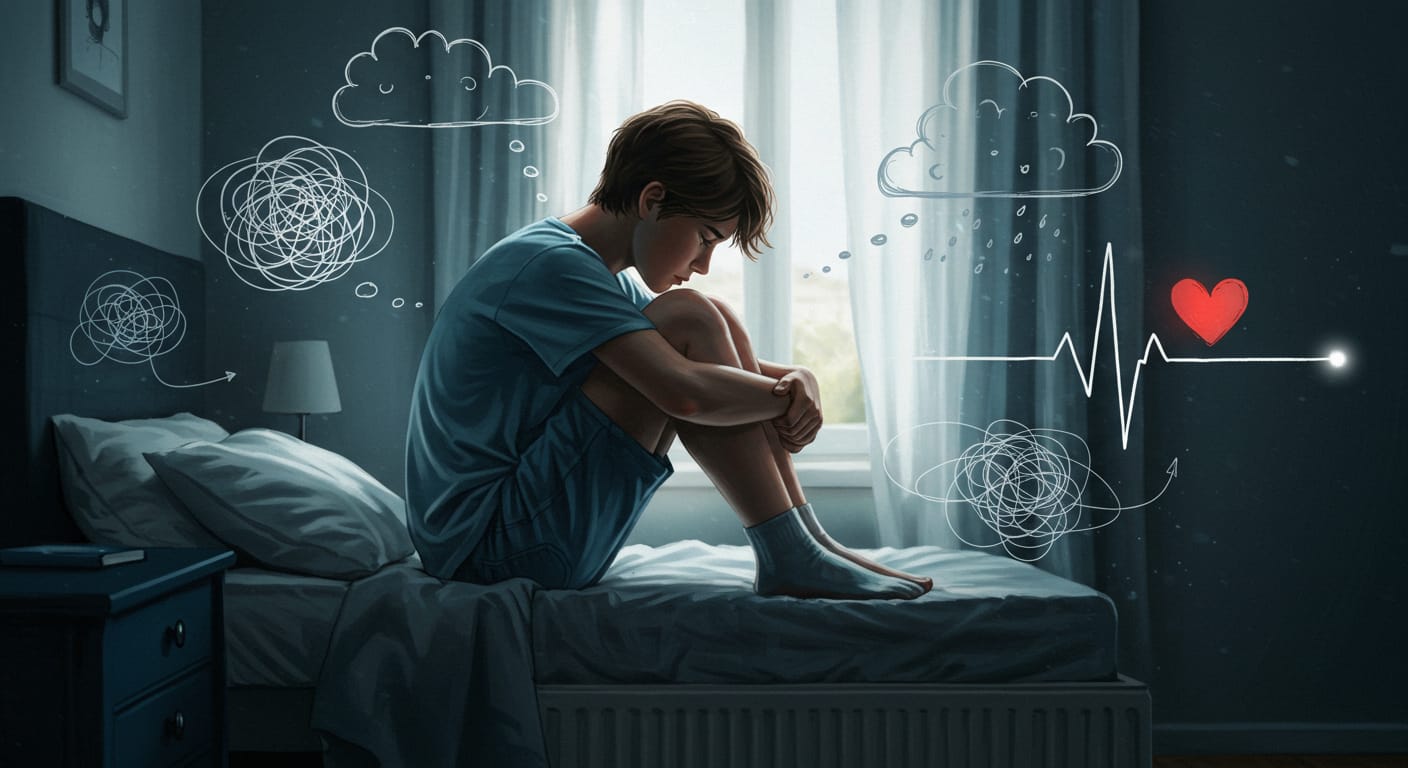😟 Anxious Teens Are More Common Than You Think
Everyone feels anxiety from time to time. It’s a normal part of life. But when anxiety starts to interfere with your teen’s daily life—leading to panic attacks, avoidance behaviors, or isolation—it’s time to take action.
“Anxiety is the dizziness of freedom.” — Søren Kierkegaard
Left unaddressed, anxiety can develop into depression or worsen other mental health conditions. That’s why early support is crucial.
💡 Recognizing the Signs of Anxiety in Teens
Parents often mistake anxiety for overreacting or moodiness. But inside, your teen may feel like they’re losing control of their thoughts.
They may be:
-
Avoiding social situations
-
Complaining of headaches or stomachaches
-
Struggling with schoolwork
-
Panicking in seemingly small situations
Sometimes, teens don’t know how to say, “I’m anxious.” Instead, they lash out or shut down—adding confusion and stress to the home. Understanding this behavior is the first step in offering support.
🚩 Common Risk Factors for Teen Anxiety
Several factors can make a teen more vulnerable to anxiety, including:
-
Family history of anxiety or depression
-
Traumatic experiences (e.g., abuse or bullying)
-
Ongoing stress from school, friends, or home life
-
Co-occurring mental health challenges like depression
If you recognize these signs and risk factors, talk to your doctor or a mental health professional as soon as possible.
🛠 Simple Anxiety Relief Techniques for Teens
Treatment doesn’t always start with medication. In fact, holistic methods can be very effective when consistently practiced. Encourage your teen to:
-
Get Active: Sports, dancing, walking, or even free play can help release stress.
-
Eat Well: Nutritious food boosts brain function and balances mood.
-
Sleep Enough: Create calming bedtime routines. Reduce phone use before sleep.
-
Breathe Deeply: Practice deep breathing to slow the heart rate during panic attacks.
-
Talk It Out: Journaling or speaking with someone they trust can make a huge difference.
Help your teen recognize negative thoughts and learn to replace them with positive self-talk.
🧠 Therapy and Medical Options
If anxiety is persistent and severe, a licensed therapist can assess the situation and build a treatment plan. Therapy may include:
-
Cognitive Behavioral Therapy (CBT)
-
Mindfulness strategies
-
Coping skills and social confidence training
In some cases, the doctor may recommend anti-anxiety medication to help your teen feel more in control while learning long-term strategies.
🤝 What Teens Need Most from Parents
Your role as a parent is essential. Here’s how you can help:
-
Be patient and nonjudgmental.
-
Listen with empathy—not criticism.
-
Avoid phrases like “Just relax” or “Get over it.”
-
Create a safe space where your child can open up freely.
-
Celebrate small wins along their recovery journey.
✅ Final Encouragement: Anxiety Relief Is Possible
Your child isn’t broken—they’re simply struggling. And with the right support, healing is absolutely possible.
Help your teen take small steps each day, and never hesitate to reach out for professional help.
🌟 With love, support, and the right guidance, your teen can move from panic to peace.


